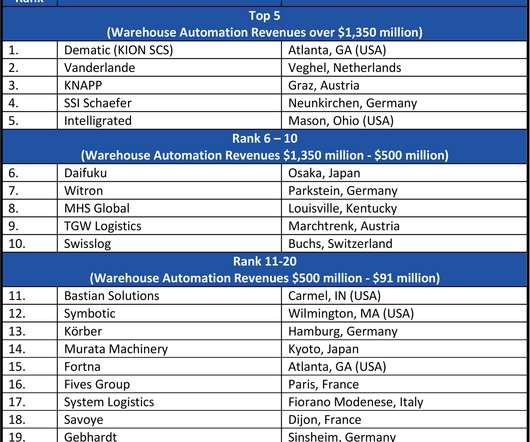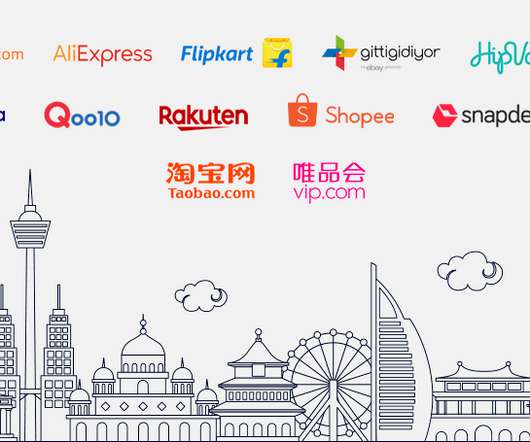Top 20 Warehouse Automation Suppliers Worldwide
Logistics Viewpoints
OCTOBER 26, 2022
Also, warehouse automation excludes similar systems such as airport baggage handling, manufacturing-line automation, and manually driven forklifts. I will soon be publishing the 2021 base-year study with a five-year forecast through 2026. MURATA MACHINERY is a privately-held industrial manufacturing and services company.
















Let's personalize your content